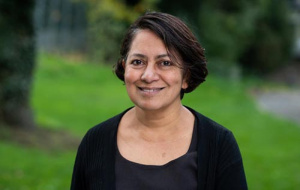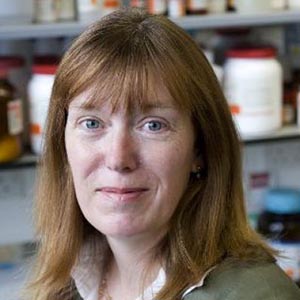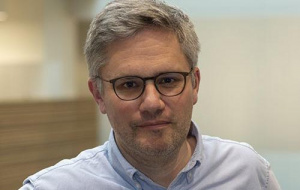University-wide COVID-19 research
 Many of our friends and colleagues from across the University are currently involved in research relating to COVID-19. The following covers recent news and updates.
Many of our friends and colleagues from across the University are currently involved in research relating to COVID-19. The following covers recent news and updates.
Oxford Vaccine Programme opens for clinical trial recruitment (27 March)
University of Oxford researchers have started screening healthy volunteers (aged 18-55) for their upcoming ChAdOx1 nCoV-19 vaccine trial in the Thames Valley Region. The vaccine based on an adenovirus vaccine vector and the SARS-CoV-2 spike protein is already in production but won’t be ready for some weeks still.
The trial will provide valuable information on the safety aspects of the vaccine, as well as its ability to generate an immune response against the virus. Interested individuals can volunteer to participate on the COVID-19 vaccine website.
Full story here.

Professor Sunetra Gupta
Understanding the importance of serologic testing (26 March)
Serologic tests are blood tests that look for antibodies in your blood and would allow scientists to decipher what fraction of the British public have already had COVID-19 and recovered and provide an improved estimate of the number remaining at risk of serious illness.
Research led by Professor Sunetra Gupta and Dr Jose Lourenco from Oxford’s Department of Zoology, used a well-understood and widely studied modelling approach. The model describes rates of transition between three classes of individuals – those that have not had the disease and are therefore susceptible to catching it, those that are infected and can transmit the virus to susceptible individuals, and those that have had the disease and have recovered.
Further details here.
 Oxford launches world’s first COVID-19 government response tracker (25 March)
Oxford launches world’s first COVID-19 government response tracker (25 March)
The first ever tool to track and compare policy responses of governments tackling the coronavirus outbreak around the world has been launched by the Blavatnik School of Government. The Oxford COVID-19 Government Response Tracker is available online at bsg.ox.ax.uk; it is freely available and will continue to be updated throughout the crisis. The tracker launches with data from 73 countries so far.
The Government Response Tracker systematically records government responses worldwide and aggregates the scores. The index allows users to explore the variation in government responses. This information can help researchers understand whether increasingly strict measures affect the rate of infection and identify what causes governments to implement stricter or less strict measures.
Full details here.
Oxford’s COVID-19 research receives government funding (24 March)
Three Oxford-based COVID-19 projects will benefit from a share of £20 million in government investment. Oxford’s funded projects are:

Professor Sarah Gilbert
Professor Sarah Gilbert – £2.2 million for vaccine development and trials
The team are already developing a new vaccine against the COVID-19. This funding will support preclinical testing of the new vaccine, vaccine manufacturing and then clinical trials in people. The first stage of human testing will be in adults aged 18-50, later expanding the trial to adults over 50 years and school age children. The vaccine is made from a harmless virus, an adenovirus, which has been altered to produce the surface spike protein of the coronavirus after vaccination, to prime the immune system to recognise and attack the coronavirus. If the vaccine is shown to be safe and effective in these earlier trials, vaccine manufacturing will be scaled up for larger studies.

Professor Peter Horby
Professor Peter Horby – £2.1 million for research into the effectiveness of current drugs on COVID-19
A clinical trial has started in the UK to test if existing or new drugs can help patients hospitalised with confirmed COVID-19. The drugs will be tested to see if they are safe and effective when added to the usual standard of care. The first two therapies to be tested will be HIV drugs and low-dose corticosteroids. The research team’s ambitious aim is to have data available to inform patient treatment within three months.

Dr Sandy Douglas
Dr Sandy Douglas – £0.4 million, research into vaccine manufacturing capabilities
The team are aiming to develop manufacturing processes for producing harmless virus, adenovirus vaccines at a million-dose scale, so that – if clinical trials are successful – a vaccine could be made available to high-risk groups as quickly as possible. They are working with Professor Sarah Gilbert’s team, who are developing novel coronavirus vaccines by modifying harmless adenoviruses.
Full story here.

Professor Martin Landray
First patients enrolled in new clinical trials (23 March)
Researchers from the University of Oxford have launched a new clinical trial to test the effects of potential drug treatments for patients admitted to hospital with COVID-19. The first patients have now been recruited.
Peter Horby, Professor of Emerging Infectious Diseases and Global Health in the Nuffield Department of Medicine, University of Oxford, and Chief Investigator for the trial, said “There is an urgent need for reliable evidence on the best care for patients with COVID-19. Providing possible new treatments through a well-designed clinical trial is the best way to get that evidence. Adults admitted to hospital with COVID-19 should be offered the opportunity to participate in this trial and contribute to improving care for everyone. All patients will receive the standard full medical care, regardless of which treatment group they are placed in.”
Martin Landray, Professor of Medicine and Epidemiology at the Nuffield Department of Population Health, University of Oxford, and Deputy Chief Investigator added: “The streamlined design of this clinical trial allows consenting patients to be enrolled in large numbers easily and without compromising patient safety or adding significantly to the workload of busy hospitals and their staff. In this way we can rapidly assess the value of potential treatments for COVID-19 and provide reliable information on the best ways to treat patients with this disease.”
Further details of the trial here.

Professors Andrew Farmery
Increasing the UK’s capacity for ventilator manufacture (20 March)
Engineers, anaesthetists and surgeons from the University of Oxford and King’s College London are building and testing prototypes for ventilators that can be more easily manufactured.
The researchers, led by Oxford Professors Andrew Farmery, Mark Thompson and Alfonso Castrejon-Pita and King’s College London’s Dr Federico Formenti, are working in response to the UK government calls to increase the country’s ventilator manufacturing capacity due to COVID-19. Their design aims to exploit off-the-shelf components and equipment whilst demonstrating safety and reliability and achieving regulatory approval. Once achieved, this approach could unlock potential for a new kind of distributed manufacturing effort.
Read the full story here.
Trialling a COVID-19 vaccine (19 March)
The University of Oxford is spear-heading a massive effort to develop a UK vaccine for coronavirus within months and make it available to save lives before the end of the year.
Led by Prof Sarah Gilbert, researchers are planning a safety trial on humans of what is expected to be the UK’s first coronavirus vaccine in April. Provided that it goes smoothly, they will move directly into a larger trial to assess how effective the vaccine is at protecting against the infection.
Read more on the Guardian website.

Professor Wei Huang
Rapid testing technology (18 March)
Professors Zhanfeng Cui and Wei Huang from Oxford’s Engineering Science Department and the Oxford Suzhou Centre for Advanced Research (OSCAR) have developed rapid testing technology to help limit the spread of COVID-19. This test is more than three times faster than existing test capabilities, providing accurate results in just thirty minutes.
The test is very sensitive meaning that patients in the early stages of infection can be identified sooner to ensure those affected can be isolated more quickly. The technology is also simple – requiring a simple heat-block which maintains a constant temperature for RNA reverse transcription and DNA amplification with results being read by the naked eye. This is vital for effective use in rural areas or community healthcare centres.
Further information here.

Professor Christophe Fraser
Developing a coronavirus mobile app (17 March)
Medical research and bioethics experts at Oxford University are exploring the potential of a coronavirus mobile app for instant contact tracing. It is believed that such an app could significantly help to contain the spread of the virus.
Professor Christophe Fraser from the University’s Big Data Institute explains: “Coronavirus is unlike previous epidemics and requires multiple inter-dependent containment strategies.” As evidence suggest that half of transmissions occur in the very early phase of infection, a rapid method for alerting people who may have been exposed is vital.
Find out more here.
Published: 3 April 2020
